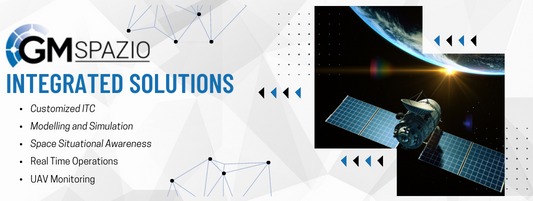
The growing density of objects in Earth's orbit has brought space safety to the forefront of the aerospace sector’s strategic concerns. According to the latest figures published by the European Space Agency (ESA), more than 36,000 trackable objects larger than 10 cm are currently in orbit, with millions of smaller, untrackable fragments also posing serious threats to operational satellites. The explosion of commercial satellite constellations, coupled with the lack of unified orbital traffic regulations, is leading to an increasingly congested and hazardous orbital environment.
To address this crisis, ESA launched the Zero Debris Approach, a long-term vision aiming to halt the generation of new debris by 2030. However, while mitigation and debris removal technologies develop, operators urgently need effective tools to track, assess, and avoid collisions today. Among the few solutions already in use, one stands out for its flexibility, operational maturity, and international adoption: Orbit Guard.
Orbit Guard is an advanced software toolkit for Space Situational Awareness (SSA) and Space Surveillance and Tracking (SST). Designed with a modular architecture, it is capable of ingesting and processing heterogeneous data sources—including radar, optical, infrared, and RF sensors—transforming raw telemetry and observation data into a coherent, dynamic picture of the orbital environment.
Among its main capabilities:
- Real-time orbital object tracking across LEO, MEO, and GEO;
- Conjunction analysis and collision probability assessment, powered by Ansys STK™ and ODTK™ integrations;
- Automated ingestion of formats like TLE, OPM, ephemeris, and telemetry streams;
- Planning and support of collision avoidance maneuvers;
- A fully customizable and interoperable user interface for rapid deployment in institutional and research environments.
The system is designed to operate both in mission-critical defense contexts and as a training tool in academic institutions, thanks to its intuitive configuration and scalable data processing framework.
Real-World Applications: Military Operations and Academic Research
Brazil: Supporting Strategic Autonomy
In 2023, Orbit Guard was officially deployed by the Brazilian Aerospace Operations Command (COMAE) and the Aeronautics Institute of Technology (ITA) as part of a national program to strengthen autonomous space surveillance capabilities.
Within this framework, Orbit Guard has been integrated into Brazilian operational infrastructure to:
- Continuously monitor national space assets;
- Identify potential conjunctions with other orbital bodies;
- Support rapid decision-making for collision avoidance;
- Strengthen national resilience in space operations.
The program was financed by the Brazilian Air Force and reflects a growing recognition that space sovereignty begins with the ability to independently monitor and protect one's own orbital assets.
Italy: Strategic Satellite Monitoring with the Aerospace Engineering Group (GIAS)
In Italy, the Aerospace Engineering Group (GIAS) is also leveraging Orbit Guard for the operational observation of satellites of national and European interest. GIAS employs the toolkit to monitor critical orbital assets, conduct independent analyses, and contribute to situational awareness efforts that support both civil and governmental space programs.
Their activities include:
- Tracking and verification of satellite trajectories relevant to national and European missions;
- Monitoring of orbital risks and space environment dynamics;
- Data fusion and analysis for early identification of potential threats to strategic assets.
GIAS's use of Orbit Guard demonstrates how the tool is suited for institutional applications where reliability, autonomy, and accuracy are paramount. This role reinforces the importance of combining academic engineering excellence with operational responsibility in the domain of space safety.
Conclusion: An Italian Solution for Global Space Safety
The Orbit Guard case clearly demonstrates how an Italian-developed solution can meet one of the most urgent challenges of modern space operations: protecting satellites from collisions in an increasingly congested orbital environment.
Whether supporting Brazil’s defense capabilities or enhancing academic excellence in Italy, Orbit Guard proves to be a versatile, scalable, and mission-ready platform. As the global space sector moves toward higher automation, mega-constellations, and more complex orbital logistics, space situational awareness will become a non-negotiable requirement.
Orbit Guard positions itself not just as a software product, but as a strategic asset—a digital shield for satellite operators, defense forces, and research centers committed to ensuring orbital safety and sustainability.





